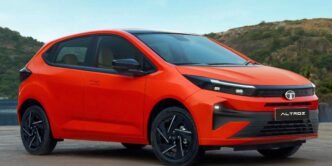Hello, this is Kenji, presenting this edition of the #techAsia newsletter from Tokyo.
Leading automakers here in Japan have been busy dealing with a range of issues as the era of electrification and intelligent cars blunts their traditional competitive edge.
Over the past weekend, Nissan Motor was in the spotlight, with Nikkei learning that the ailing automaker is considering shutting down two factories in Mexico. Two more facilities in Kanagawa, a prefecture neighboring Tokyo, may also be on the chopping block.
There is no denying that one of Japan’s oldest homegrown automakers — which traces its history back to the 1910s — is struggling. After recording an annual net loss of 670.8 billion yen ($4.6 billion) last week, Nissan said it will reduce its number of assembly plants from 17 to 10 and cut 20,000 jobs worldwide. The magnitude of the loss and the scale of restructuring are reminiscent of the “Nissan Revival Plan” in 1999, introduced and implemented under now-ousted Carlos Ghosn. It remains to be seen, however, whether it can repeat the comeback it made in 2000s.
Meanwhile, Honda Motor, another iconic Japanese maker of cars and motorbikes, announced on Tuesday it will drastically cut back its investment plan.Just a year ago, the company was saying it would spend 10 trillion yen through March 2031. That figure was slashed by 30% to 7 trillion yen, marking a significant retreat from the electrification strategy that was originally intended to be the main engine of its transformation drive.
“Considering market conditions, policy trends and environmental regulations, our initial electrification strategy cannot be implemented as planned,” Honda President Toshihiro Mibe told reporters on Tuesday.
Merger talks between these two troubled automakers fell apart in Febru.
Just as Honda was announcing taking a step back from electrification, the world’s biggest EV battery maker was making a splash on the Hong Kong market.China’s Contempor Amperex Technology Co., better known as CATL, started trading in the city on Tuesday. It is dual-listed in Shenzhen.
After its share price rose 16% from its offering price on the first trading day, the over-allotment option was fully exercised, pushing up the total amount of funds raised to 41 billion Hong Kong dollars ($5.3 billion).
CATL has gained substantial ammunition for its war chest as it plans a new facility in Hung, further highlighting Chinese players’ determination to conquer the global EV market. While the dual-listing in Hong Kong was an act of self-help, however, the company has also been enjoying hefty financial support from the government.
And don’t forget, Nikkei Asia’s webinar on “Tech Asia Live: What Trump’s trade war means for Asia’s supply chains” will take place on May 23.
Our tech reporters will discuss how companies are responding to the tariff war, as well as the impact of Trump’s policies on China’s drive to bolster its tech manufacturing prowess. Register for free here.
A generous helping
CATL, which notched the year’s biggest share offering globally on Tuesday, is also one of the biggest recipients of government funding, Nikkei Asia’s Kenji Kawase reports.
The leading EV battery maker stopped releasing figures on state subsidies for the full year in 2024, but the amount previously disclosed for the first half at 3.84 billion yuan was enough to place it in second place among all mainland listed companies, after only state-owned oil major Sinopec.
There are hints as to how much CATL may have received from the government for the full year, by connecting some dots in its official disclosures. The company and its independent external auditor have not responded to queries from Nikkei Asia at the time of publication.
Apart from CATL’s disclosure issue, the overall ranking of government subsidies is quite telling of where Beijing places its policy focus. While Sinopec, along with PetroChina, is traditionally a strategic target of support from an energy security standpoint, the appearance of BYD, Great Wall Motors, SAIC Motor and Guangzhou Automobile Group (GAC) in the top 10 along with CATL clearly indicates the importance of the EV industry.
Closer to the action
Nvidia is planning a research and development center in Shanghai, signaling a continued commitment to China despite slumping sales due to stringent U.S. export controls, write the Financial Times’ Zijing Wu and Michael Acton.
Chief executive Jensen Huang discussed the plan with Shanghai’s mayor, people with knowledge of the matter told the FT.
While core intellectual property and production would remain outside China, the proposed center would focus on better understanding local customer needs and navigating complex U.S. regulations.
It will also have teams working on areas such as chip design verification and autonomous driving. Nvidia also seeks to tap into China’s AI talent pool and maintain its foothold in a market Huang estimates could be worth $50 billion.This move comes as Nvidia grapples with restrictions on its advanced chips, offering lower-specification alternatives like the L20 processor, which Chinese tech giants are hesitant to adopt.
The company is attempting to balance its ambitions in China against the backdrop of escalating U.S.-China tech rivalry and competition from local players like Huawei.
The best of Computex
Nikkei Asia’s tech correspondents Cheng Ting-Fang and Lauly Li were busy this week covering Computex Taipei, one of the most important tech industry events of the year.
On Monday, the eve of the official opening, they reported that Nvidia founder and CEO Jensen Huang revealed plans for his company to build an AI supercomputer for Taiwan with Foxconn, Taiwan Semiconductor Manufacturing Co. and the local government, as demand for “sovereign AI” grows around the world.
The duo then caught MediaTek CEO Rick Tsai’s keynote speech on Tuesday, where he revealed that the Taiwanese chip designer will start using TSMC’s cutting-edge 2-nanometer chipmaking technology as early as September in an effort to stay competitive in the AI era.
Cheng and Li on Wednesday covered Nvidia’s Huang again as he revealed that the American chip company has lost substantial market share in China. It was 95% at the beginning of the Biden administration, but was down to about 50% under the second Trump regime.
“We lost a lot of revenue,” Huang said, while slamming Washington’s export controls on AI chips to China as a “failure.” The restrictions, he argues, have only motivated homegrown players like Huawei to grab a bigger slice of the Chinese market.
AI in court
AI-powered legal tech startups are emerging in South Korea and Japan, shaking up the law industry in both markets. Kim Jaewon and Ryohtaroh Satoh, Nikkei Asia’s reporters in those two countries, report on how this new breed of tech companies is offering a wide range of legal services from a client-lawyer matching app to AI-based legal analysis tools — and providing them at much more affordable prices.
However, not everyone in the legal profession in either country is happy about the latest wave of tech-led innovation. In South Korea especially, the country’s older and more established lawyers are pushing back, while those in the younger generation, who graduated from recently introduced law schools and passed a new national exam, are more open to the changes.
Highlighting this tension, the country’s bar association has accused legal startups of acting as “illegal brokers” and doing business without a lawyer’s license.
Welcome to the Tech Latest podcast. Hosted by our tech coverage veterans, Katey Creel and Akito Tanaka, every Tuesday we deliver the hottest trends and news from the sector.
In this episode, our host Katey speaks with India correspondent Sayan Chakraborty about how the South Asian country’s deep tech startups are vying for investor attention in a landscape long dominated by quick-revenue ventures like e-commerce and ride-hailing.
Find us on Apple Podcasts | Spotify | Amazon Music | Voicy | YouTube | YouTube Music
Suggested reads
1. Half of Japan’s new chip fabs still shy of mass production (Nikkei Asia)
2. Thailand’s Banpu and CP turn to Japan ‘deep tech’ for sustainability (Nikkei Asia)
3. Baiont’s Feng Ji: Quant managers who don’t adopt AI will be eliminated by the market (FT)
4. Panasonic’s US battery plant on course to open after ‘toughest’ delays (Nikkei Asia)
5. AI for the teacher: 30% of South Korean schools wield digital textbooks (Nikkei Asia)
6. Nvidia chief announces major Taiwan chip investments (FT)
7. Global supply chains threatened by lack of Chinese rare earths (FT)
8. Rio Tinto ups its lithium bet with $900m investment in Chilean JV (Nikkei Asia)
9. OpenAI to join US-UAE plan to build vast data centre in Abu Dhabi (FT)
10. Japan arms itself against foreign cyber attacks with new law (FT)
For more great stories like this delivered to your inbox every week, sign up to our #techAsia newsletter. Current subscribers, click here to update your newsletters preferences.













